Colorful Aluminum Nylon Lock Nut Color Anodizing Hex Flange Nylon Insert Lock Nut
Colorful Aluminum Nylon Lock Nut Color Anodizing Hex Flange Nylon Insert Lock Nut
- Descrição
- Avaliações (0)
Descrição
What is a Nylon Lock Nut?
A nylon lock nut, often referred to as a nyloc nut, is a prevailing torque type of locknut that features a nylon collar (or insert) at its top. When the nut is screwed onto a bolt, the internal threads engage with the bolt’s threads. As the bolt reaches the nylon portion, it forces the nylon to expand, creating a strong frictional fit and a prevailing torque that resists loosening under vibration and torque. This makes it a highly effective self-locking fastener.
Materials
The primary materials used for the metal body of nylon lock nuts are:
Carbon Steel: The most common and cost-effective material.
Stainless Steel: Offers excellent corrosion resistance (e.g., Grades 304 and 316).
Brass: Provides good corrosion resistance and is often used for its aesthetic appeal in decorative applications.
Aluminum: Valued for its light weight and corrosion resistance.
The locking element is consistently a durable, resilient nylon (polyamide) ring.
Surface Treatments
To enhance corrosion resistance and appearance, the metal body of the nut often receives a surface treatment. Common treatments include:
Zinc Plating: A very common finish, often with a clear (blue-bright) or yellow (zinc dichromate) color.
Hot-Dip Galvanizing: Provides a thick, rugged coating for harsh environments.
Nickel Plating: Offers a hard, corrosion-resistant surface with a shiny, silver appearance.
Phosphate Coating: Mainly used as a base for paint or oil, providing some corrosion resistance.
Specifications
Nylon lock nuts are manufactured in a wide range of specifications to meet various industrial standards and requirements.
Thread Sizes: Available in metric (e.g., M3, M4, M5, up to M20 and beyond) and imperial (e.g., #4-40, 1/4″-20, 1/2″-13) thread sizes.
Standards: Common standards include DIN 985 (International Metric), ISO 7040, and IFI 100/107.
Grades/Classes: For steel nuts, common strength grades are 5, 8, 9, 10, and 12, indicating the nut’s proof load and material strength.
Application Fields
Due to their reliable self-locking ability, nylon lock nuts are used across numerous industries:
Automotive: In engines, transmissions, chassis, and body panels to withstand constant vibration.
Aerospace: In non-critical structural components and interior panels.
Machinery and Equipment: To secure parts on industrial machinery, conveyor systems, and agricultural equipment.
Electronics: For fastening components in appliances and electronic enclosures.
Furniture Assembly: To prevent joints from coming loose over time.
Construction and Infrastructure: In steel structures, scaffolding, and HVAC systems.
Excellent Case: Securing a Robotic Arm Joint
An industrial robotic arm on an assembly line performs rapid, repetitive movements thousands of times a day, generating significant vibration. A critical pivot joint, which must maintain precise alignment, is fastened using a high-grade (Class 10) stainless steel nylon lock nut.
The nut is threaded onto a bolt that connects two sections of the arm. As the bolt tightens against the nylon insert, the resulting frictional lock ensures the joint remains securely fastened. This prevents any loosening that could lead to misalignment, reduced precision, or catastrophic failure. The use of the nyloc nut guarantees operational reliability, minimizes downtime for maintenance, and enhances the overall safety of the manufacturing cell.

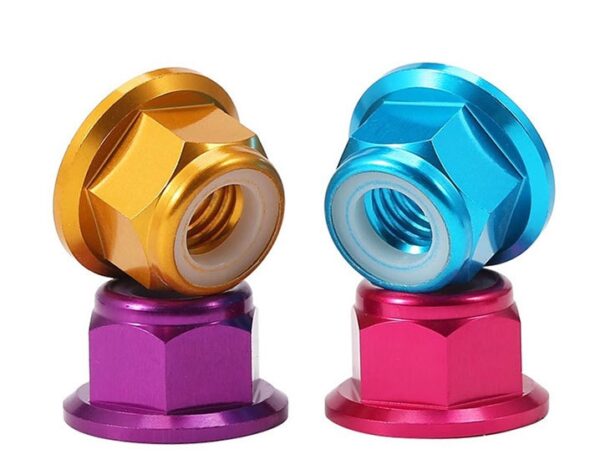
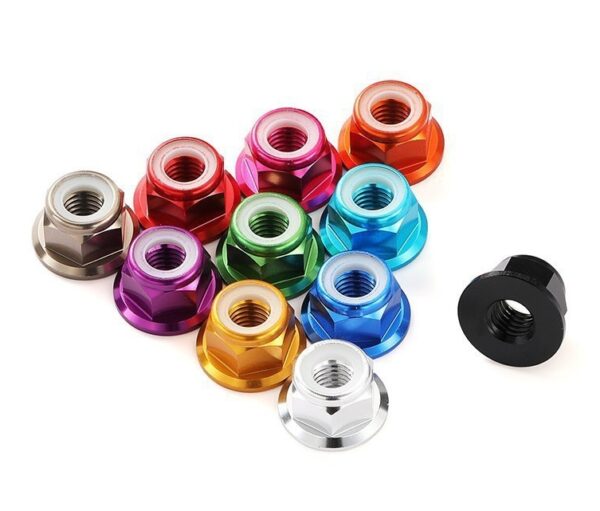
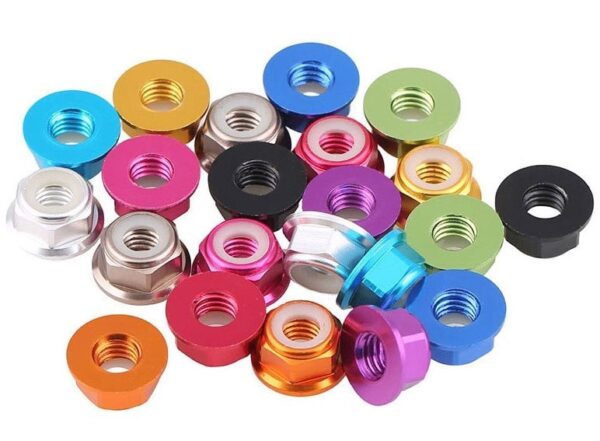

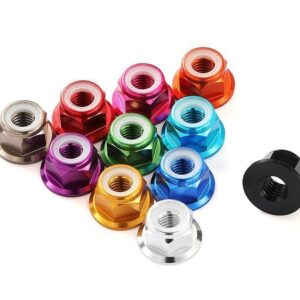

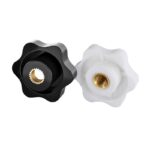
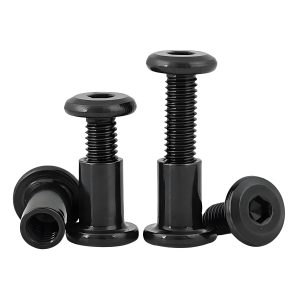
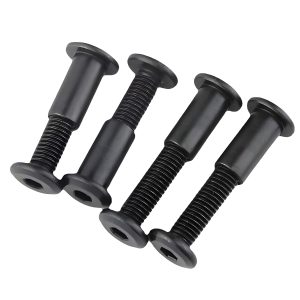
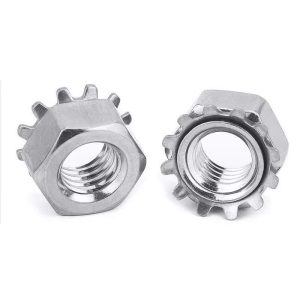
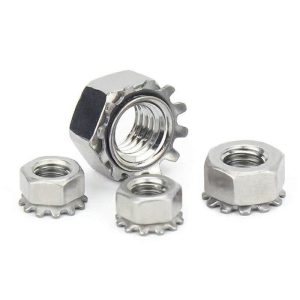
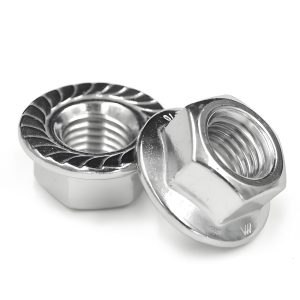
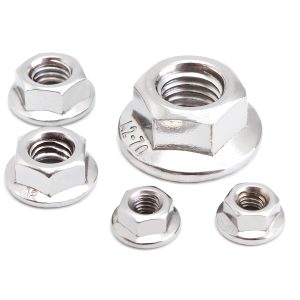
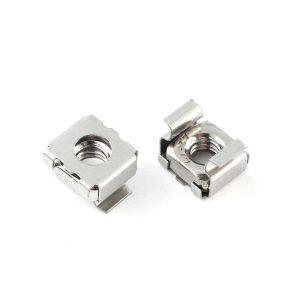
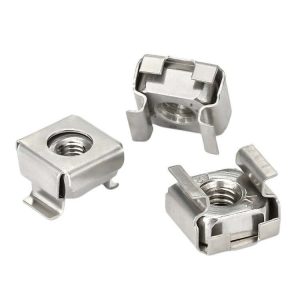
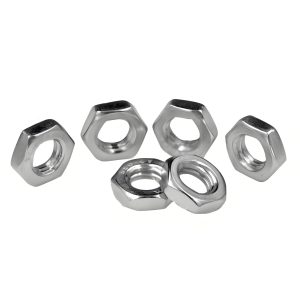
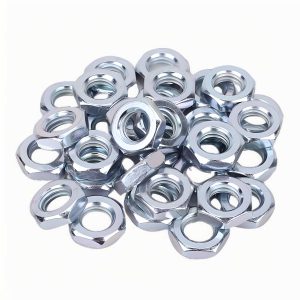
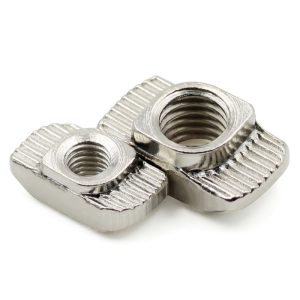
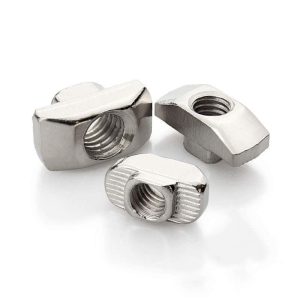
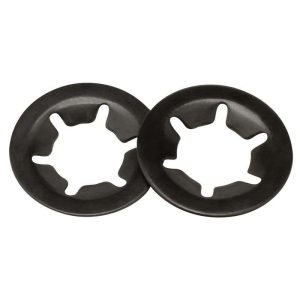

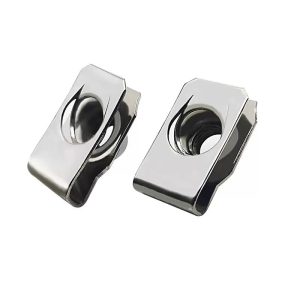
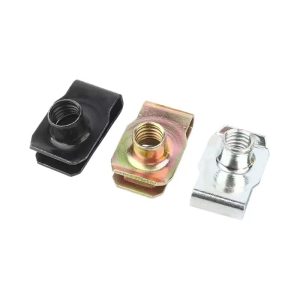
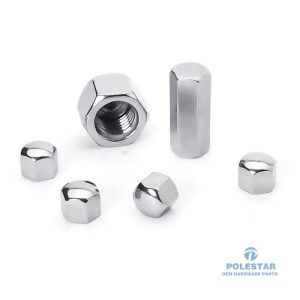
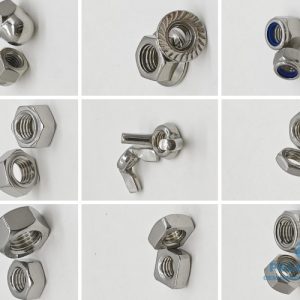
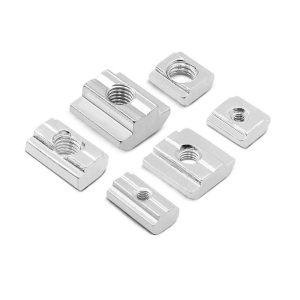
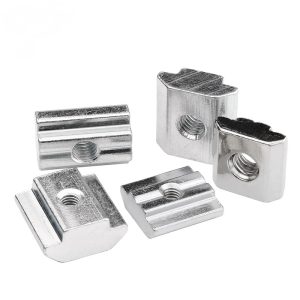
Avaliações
Ainda não existem avaliações.